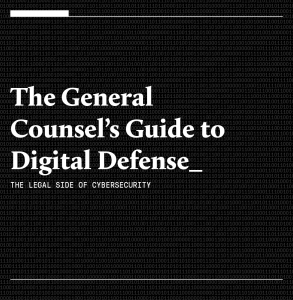Examining his long career in tech, you might say that Curt Pederson has the “CIO gene.” After twelve jobs in twenty-three years with a large public utility, he left to become CIO at a large Washington state agency and was later Oregon’s first CIO. Most recently, in 2013, he came out of retirement to accept the CIO position at the University of Portland (UP), a private, Catholic university of nearly 4,000 students.
From 2010 to 2012, Pederson directed Oregon State University’s open source lab, which provides hands-on experience for Linux, Apache, and Drupal projects. Now, he’s partnering with the Oregon Technology Association and the Oregon Alliance of Independent Colleges and Universities to expand targeted cyber research and education through a proposed Oregon Center for Cyber Excellence.
“None of these universities could do this alone, but together, we can all build a collective vision and create a center to educate the future leaders in cybersecurity.”
When Pederson stepped in as the University of Portland’s CIO, he found a state-of-the-art data center with strong infrastructure, but a system that lacked adequate Internet bandwidth and mobile solutions. “We require our students to live on campus for a year, and as CIO, I believe we should use technology to make our campus feel like their home,” he says. He led the push to find subscription solutions in the cloud and rebrand those solutions with UP applications.
Next, UP used an Internet broker to triple bandwidth at no extra cost. Now, students have full access to high-speed connections and can watch streaming services like Netflix and YouTube without buffering delays. Additionally, Pederson used a subscription solution to build a hybrid single sign-on solution and found a local angel-fund startup to create a test bed for internal private social networking. He’s replacing an enterprise CMS, looking at business analytics, and pressuring cell-phone carriers to improve campus service.
School Stats
The University of Portland is a private Catholic institution recently named the number-one producer of Fulbright scholars and the third for those accepted into the Peace Corps among US master’s level universities.
68%
Out-of-state students
14:1
Student-to-faculty ratio
Notable alumnus
Dr. Michael Merzenich, neuroscientist renowned for his work in brain plasticity research
As Pederson describes his initiatives, it’s easy to hear his passion for service and innovation. Those traits sparked his interest in his latest endeavor: the Oregon Center for Cyber Excellence. After investigating what other states are doing and getting experts together to talk about making UP an academic center of excellence with a federal affiliation, Pederson discovered just how hard it is to get a full program off the ground. The faculty, which hadn’t grown along with the student population, didn’t have the capacity to take on the venture.
While the University of Portland has small computer science and engineering departments, it’s especially strong in ethics. Pederson started thinking that perhaps close partnerships with other organizations would help to create a robust, well-rounded center. Two other universities created nationally affiliated centers, but Pederson still saw a need. “Oregon is different. We do things the Oregon way. We’re made up of so many small business and might not have the same needs as other states in these national programs,” he explains.
That’s when Pederson learned that the Oregon Technology Association (a group with hundreds of members) proposed a legislative solution to establish an Oregon center. He contacted the director, hoping to get to work, but discovered that the bill had failed. The Association asked him to do a reverse pitch and go to the business community with a proposal.
“Oregon has a problem,” he says. “Cybercrime is poised to affect our businesses and our government, and we’re not as ready for it as we could be. We don’t have adequate resources or education to handle growing cybersecurity issues.” Pederson worked diligently, preparing himself to take that message to the business community and propose a Center of Excellence as part of the solution. In mid-2015, he was ready to make his pitch—but the Association had to cancel its meeting.
While the plan is on hold, Pederson is championing the cause to anyone who will listen. He’s gained the support of the Oregon Alliance of Independent Colleges and Universities, through which each of eleven schools can offer specialized expertise. “None of these universities could do this alone, but together, we can all build a collective vision and create a center to educate the future leaders in cybersecurity,” Pederson says.
Although the exact vision is undefined, Pederson imagines a space for education and research, where educational partners offer online or on-site courses through which students of any age can earn certificates, credentials, badges, or even degrees. “The structure will let a student tailor his or her learning based on interest while taking advantage of each university’s strength in the technology field,” Pederson explains. Now, he’s getting partners on board and talking to large Oregon companies through their CISOs to secure grants and other funding streams. The schools and organizations that provide the education—and the individuals and companies that provide the funding—will work to define the center and contribute to the improvement of cybersecurity in Oregon.
Pederson, who is quick to point out that he is building on the Association’s idea, says that teamwork and collaboration will help him, the Association, the Alliance, and other partners create the best center. While the project has stalled out a few times, he believes the right pieces are in place for it all to come together. “We aren’t looking in the rear-view—we’re looking through the windshield,” he says. “Oregon needs this center, and we will get it done by working together as a community around a common interest and a common goal.”
Learn more about cybersecurity prevention and response in the legal and IT fields with a white paper from Sync titled The General Counsel’s Guide to Digital Defense. The Legal Side of Cybersecurity. Click below to download this complimentary industry insight report.

